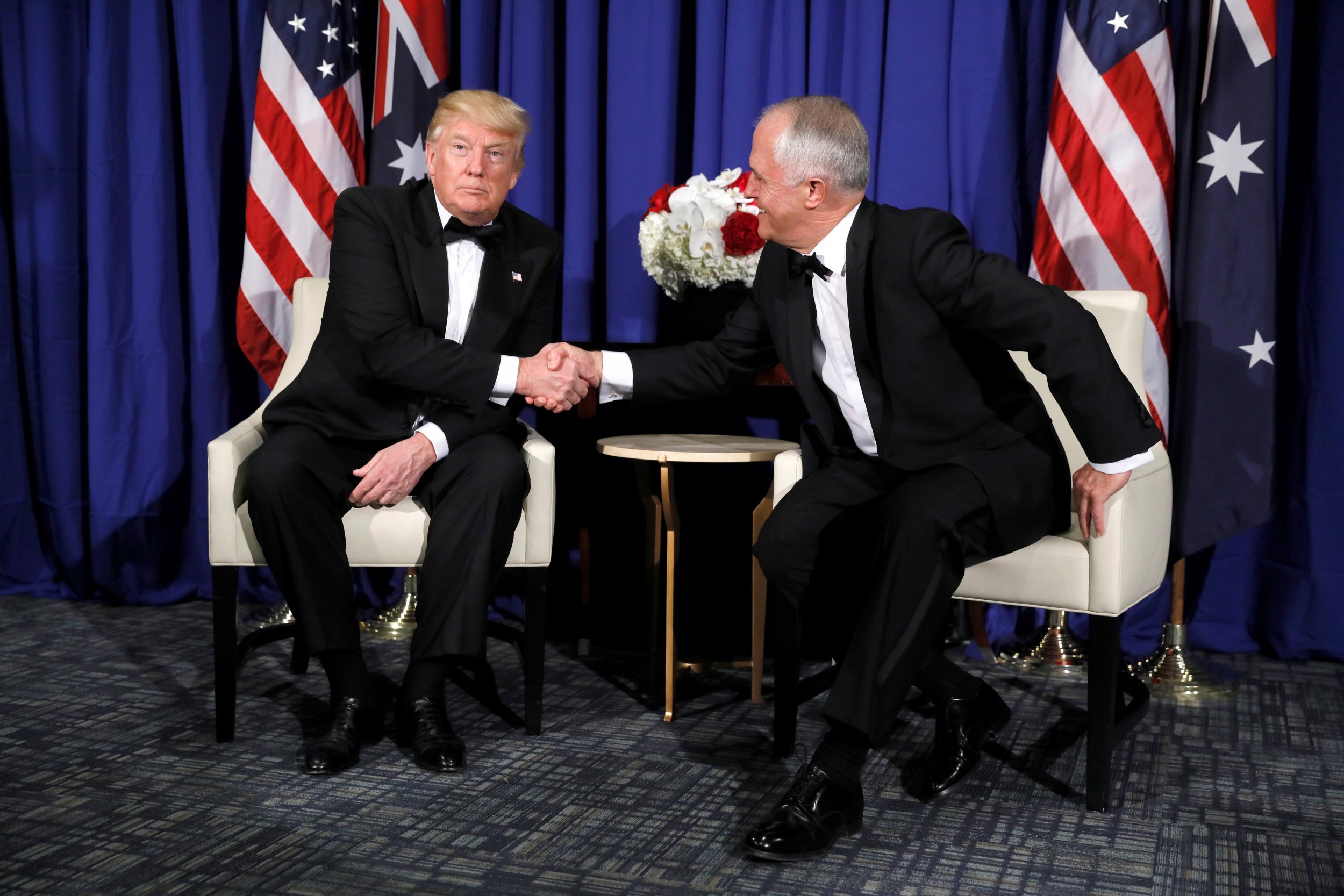
Just hours after a key ally expressed its commitment to backing the U.S. in a potential confrontation with North Korea, President Donald Trump on Friday renewed and ramped up threats against the rogue nation, tweeting that military solutions are "locked and loaded should North Korea act unwisely."
Earlier, Australian Prime Minister Malcolm Turnbull said his country would aid America, should North Korea follow through on its threat to launch a missile strike against the U.S. territory of Guam. Following a conversation with Vice President Mike Pence and ahead of a national security briefing, Turnbull's office released a statement on Friday clarifying Australia's position on the situation on the Korean Peninsula.
Turnbull welcomed the new round of sanctions on North Korea, approved unanimously by the U.N. Security Council, and expressed commitment to U.S. efforts to bring "the North Korean regime to its sense through diplomatic and economic means."
The prime minister also mentioned that Australia is ready to support the U.S. in a possible military confrontation, referring to the Australia, New Zealand and United States, or ANZUS, collective security agreement.
"We stand shoulder-to-shoulder with the United States. The ANZUS Treaty means that if America is attacked, we will come to their aid. If Australia is attacked, the Americans will come to our aid. We are joined at the hip," he said. "The American alliance is the bedrock of our national security."
Signed in 1951 by Australia, New Zealand and the U.S., the treaty binds the parties to consult in relation to any perceived threats, and to act to meet common dangers.
New Zealand decided it no longer wanted to be subject to the deal's obligations when it declared itself a nuclear-free zone in 1984, and while the treaty hasn't been formally abrogated, the U.S. no longer maintains a security relationship with that country. While this would mean that the original agreement among the three nations no longer works in practice, the treaty was invoked for the first time in the aftermath of the 9/11 attacks in 2001.
Turnbull's comments on the military alliance set the hastag #Anzus trending on Twitter, as Australians began commenting on their prime minister's decision—mostly showing opposition to it.
Richard Di Natale, leader of the Australian Greens, tweeted: "PM Turnbull needs to pick up the phone & urge Trump to de-escalate. Not back an unhinged, paranoid sociopath into a potential nuclear war."
The reference to a phone call between Turnbull and Trump isn't completely coincidental; the two leaders had a difficult conversation at the end of January, shortly after Trump's inauguration, during which the Australian prime minister told the U.S. president he could not back away from a refugee swap deal approved by his predecessor, Barack Obama.
According to transcripts of the phone call published by The Washington Post last week, Trump was furious at the situation.
"It is an embarrassment to the United States of America, and you can say it just the way I said it. I will say it just that way. As far as I am concerned, that is enough, Malcolm. I have had it. I have been making these calls all day, and this is the most unpleasant call all day. Putin was a pleasant call. This is ridiculous," Trump said.
Calming Trump's protests, Turnbull promised: "You can count on me. I will be there again and again."
That phone call wasn't the only rocky moment in the Trump-Turnbull relationship. In a recording of an off-the-record event that was leaked to the media in June, the Australian prime minister was seen mocking Trump's speaking style and his passion for online polls.
Uncommon Knowledge
Newsweek is committed to challenging conventional wisdom and finding connections in the search for common ground.
Newsweek is committed to challenging conventional wisdom and finding connections in the search for common ground.
About the writer
Sofia Lotto Persio reports mainly on Asia and gender issues for Newsweek. She previously covered international affairs with a specific ... Read more
To read how Newsweek uses AI as a newsroom tool, Click here.








